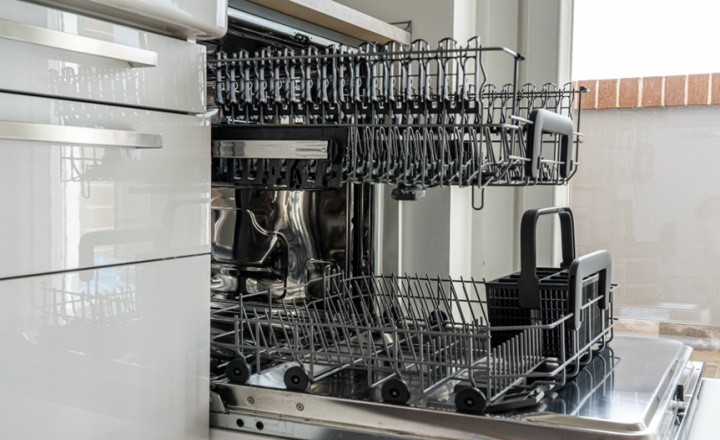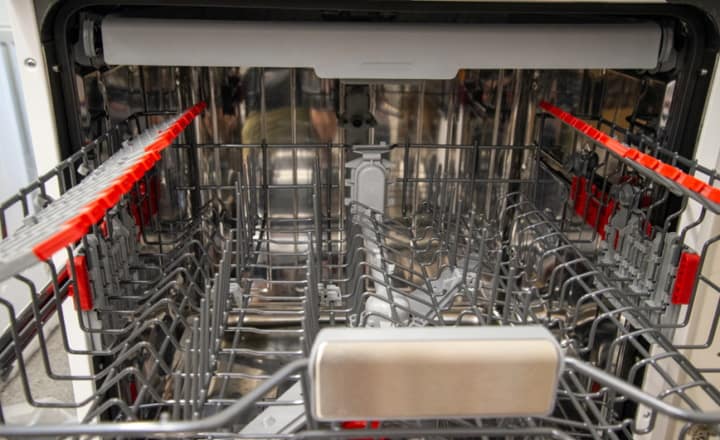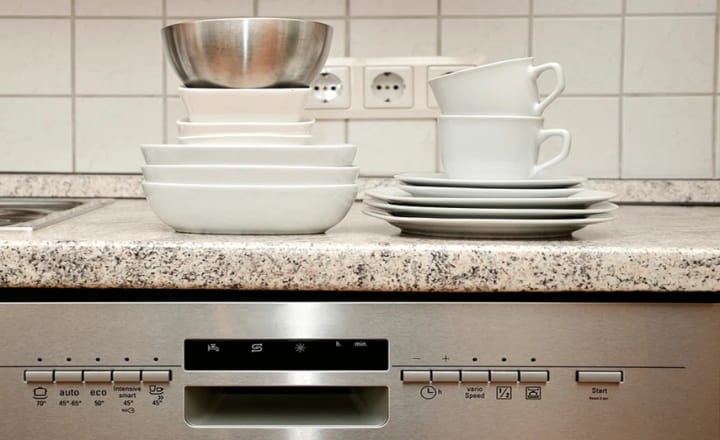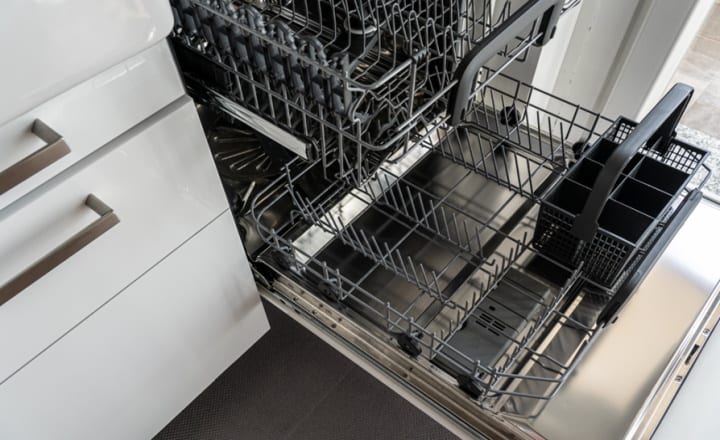Selecting the right commercial dishwasher for your restaurant is not just about keeping your dishes clean; it’s about enhancing operational efficiency, ensuring health and safety compliance, and optimizing resource usage. This comprehensive guide delves into the myriad aspects of choosing the perfect commercial dishwasher, tailored to your restaurant’s specific needs. From understanding the volume of dishware you process daily to navigating the future of dishwashing technology, we cover every angle to help you make an informed decision.
In the bustling environment of a restaurant, the efficiency and reliability of a commercial dishwasher are paramount. Not only does it impact the speed at which you can serve your customers, but it also plays a crucial role in maintaining the highest standards of hygiene and cleanliness. Selecting the right restaurant commercial dishwasher involves considering various key factors such as efficiency, size, type, and more. It’s a decision that affects not just the kitchen’s operation but the entire restaurant’s functionality.
Key factors to consider:
Efficiency in energy and water use
Size and capacity
Type of dishwasher
Adaptability to different dishware and utensils
Installation requirements
Health and safety standards
Cost, including upfront and long-term expenses
Maintenance and cleaning demands
Brand and supplier reliability
Understanding Your Restaurant’s Needs
Before diving into the types of commercial dishwashers, it’s crucial to assess your restaurant’s specific needs. This understanding will guide your selection process, ensuring that the dishwasher you choose can handle the daily demands of your establishment.
How Much Dishware Do You Process Daily?
Calculating your restaurant’s daily dishware throughput is essential. This calculation helps determine the capacity and size of the dishwasher you need, ensuring that your kitchen can operate smoothly during peak hours without unnecessary delays.
What Types of Dishware and Utensils Do You Use?
Different types of dishware and utensils may require specific washing settings or racks. For example, glassware needs a gentler wash cycle than ceramic plates, while cutlery may require specialized baskets.
Considerations for dishware types:
- Glassware: Requires gentle wash cycles
- Ceramics: Can withstand more vigorous washing
- Cutlery: Needs specific baskets or racks
- Large pots and pans: May require dishwashers with larger internal dimensions or specific wash cycles
Space and Installation Requirements
The space available in your kitchen significantly influences the type of dishwasher you can install. Beyond the physical dimensions, consider the plumbing, electrical, and ventilation requirements necessary for installation.
Related: 5 Things to Consider When Opening a Restaurant
Types of Commercial Dishwashers
Commercial dishwashers come in various types, each suited to different operational scales and specific needs. Understanding these types can help you narrow down the best fit for your restaurant.
Undercounter Dishwashers
Ideal for smaller establishments or as a secondary option in larger restaurants, undercounter dishwashers offer convenience and efficiency in a compact form.
Features, pros, and cons:
- Compact size fits under most counters
- Suitable for small to medium volume
- Limited capacity compared to larger models
Door Type Dishwashers
A step up in capacity, door type dishwashers are suitable for medium-sized establishments. They operate efficiently, washing a significant number of racks per hour.
Features, pros, and cons:
- Higher capacity than undercounter models
- Quick cycle times
- Requires more space and a higher investment
Conveyor Dishwashers
For high-volume restaurants, conveyor dishwashers offer the highest capacity, capable of handling hundreds of racks per hour.
Features, pros, and cons:
- Maximum capacity and efficiency
- Ideal for very high-volume settings
- Significant space and investment requirements
Glasswashers
Designed specifically for bars and restaurants focusing on drink service, glasswashers provide gentle yet thorough cleaning for delicate glassware.
Features, pros, and cons:
- Specialized for glassware
- Compact and efficient
- Limited use outside of glassware cleaning
Flight Type Dishwashers
The pinnacle of commercial dishwashing, flight type dishwashers are designed for the largest establishments, offering unparalleled efficiency and capacity.
Features, pros, and cons:
- Highest throughput capacity
- Customizable to specific kitchen layouts
- Significant space, investment, and operational costs
Key Features to Look For
When comparing commercial dishwashers, several key features stand out as critical for efficiency, safety, and cost-effectiveness.
Water Efficiency
Water usage varies significantly between models. Opting for a water-efficient dishwasher can lead to substantial savings on utility bills and support environmental sustainability.
Energy Efficiency
Energy efficiency not only reduces operational costs but also contributes to a more sustainable kitchen operation. Look for dishwashers with high energy ratings and innovative energy-saving features.
Speed and Cycle Times
The speed at which a dishwasher completes a cycle is crucial for maintaining a smooth kitchen operation, especially during peak hours. Compare cycle times across models to ensure they meet your needs.
Ease of Use and Maintenance
Features that simplify operation and maintenance can significantly impact the efficiency and longevity of your dishwasher. Look for models with intuitive controls, easy-to-clean components, and straightforward maintenance procedures.
Usability and maintenance features:
- Intuitive control panels
- Easily removable racks and filters
- Self-cleaning cycles
Health and Safety Considerations
Compliance with health codes and sanitization standards is non-negotiable in the restaurant industry. Commercial dishwashers must not only clean but also sanitize dishware and utensils effectively.
Sanitization Standards
Ensure that the dishwasher you choose meets or exceeds local health department requirements for sanitization, typically involving high-temperature washes or chemical sanitizers.
Chemical Usage and Handling
Safe chemical handling is essential for the health and safety of your staff and customers. Select dishwashers that offer integrated chemical dispensing systems and easy-to-manage chemical storage solutions.
Cost Considerations
Balancing the initial purchase price with long-term operational costs is key to selecting a commercial dishwasher that offers the best value for your restaurant.
Initial Purchase Price vs. Long-Term Costs
While the upfront cost is an important consideration, factor in long-term expenses such as energy, water, and maintenance costs when evaluating different models.
Warranty and Service Agreements
A comprehensive warranty and service agreement can offer peace of mind and protect your investment. Consider the terms and support options provided by different manufacturers.
Installation and Setup
Proper installation is critical to the performance and longevity of your commercial dishwasher. Follow a step-by-step guide and be aware of common installation pitfalls.
Common installation pitfalls and how to avoid them:
Inadequate water pressure: Ensure your plumbing can meet the dishwasher’s requirements.
Incorrect electrical connections: Verify that your electrical setup matches the dishwasher’s needs.
Poor ventilation: Provide adequate ventilation to prevent overheating and moisture build-up.
Maintenance and Cleaning
Regular maintenance and proper cleaning are essential for keeping your dishwasher running smoothly and extending its lifespan.
Routine maintenance tasks:
- Regularly clean filters and wash arms
- Inspect and clean spray nozzles
- Check and maintain water softeners and chemical dispensers
Troubleshooting Common Issues
Even with meticulous maintenance, commercial dishwashers can encounter issues. Knowing how to quickly diagnose and address common problems can minimize downtime.
Common problems and solutions:
- Dishes not coming out clean: Check and clean filters and spray arms.
- Slow cycle times: Ensure water temperature and pressure are within required ranges.
- Unusual noises: Inspect for obstructions or damage to moving parts.
The Future of Commercial Dishwashing Technology
Staying informed about emerging trends and technologies in commercial dishwashing can help you make a future-proof investment. Innovations in energy efficiency, water usage, and automation are shaping the future of commercial dishwashing.
Case Studies: Successful Restaurant Dishwashing Solutions
Learning from the experiences of other restaurants can provide valuable insights into the decision-making process and the impact of different dishwasher solutions.
Examples of successful dishwasher solutions:
- A high-volume restaurant that optimized its operation with a conveyor dishwasher
- A small café that found the perfect balance of efficiency and space with an undercounter dishwasher
Choosing the Right Supplier and Brand
Selecting a reliable supplier and a reputable brand is as important as choosing the right dishwasher model. Consider factors such as reputation, customer support, and parts availability.
What to Look for in a Dishwasher Supplier
Reputation for quality and reliability
Comprehensive customer support and service
Availability of parts and accessories
Top Commercial Dishwasher Brands Reviewed
Exploring leading brands and their standout models can give you a clearer idea of the options available and help you make a more informed decision.
Legal and Environmental Compliance
Ensuring compliance with regulatory standards and adopting eco-friendly practices is essential for responsible restaurant operation. Investigate the environmental impact and legal compliance of different dishwasher models.
Final Considerations and Checklist
Before making your purchase decision, go through a final checklist to ensure that all your criteria are met and that you have considered all relevant factors.
Final checklist items:
- Capacity and size requirements
- Efficiency and operational cost considerations
- Health and safety compliance
- Installation and maintenance requirements
Conclusion
Choosing the right commercial dishwasher for your restaurant is a critical decision that affects not just the cleanliness of your dishware but the overall efficiency and sustainability of your operation. By carefully considering your specific needs, evaluating the key features and types of dishwashers available, and understanding the long-term cost implications and maintenance demands, you can select a dishwasher that not only meets but exceeds your expectations. Embrace the future of dishwashing technology with a solution that keeps your dishes sparkling, your operations smooth, and your environmental impact minimal.





